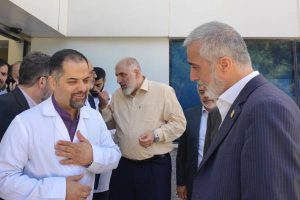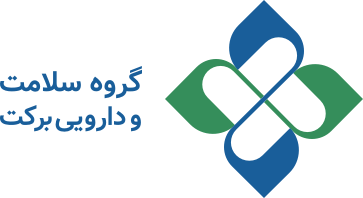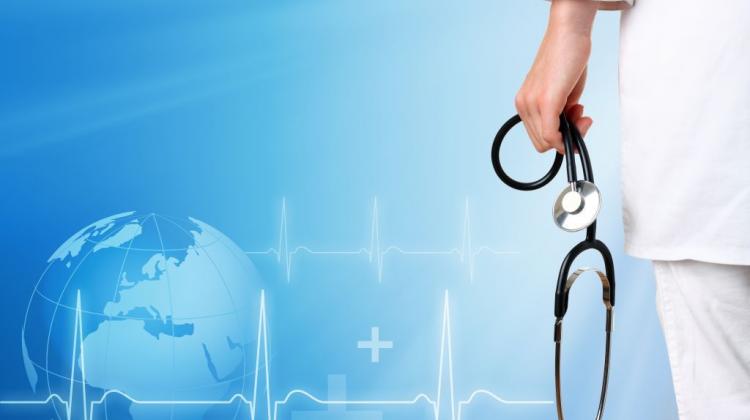
Health diplomacy: powerful tool in Iran’s foreign policy
Barekat Health & Pharmaceutical Group: Health diplomacy has emerged as a powerful tool in foreign policy, enabling Iran to enhance its role in the Middle East and Africa. As an evolving concept in international relations, health diplomacy allows countries to leverage health-related initiatives to promote national interests and increase regional and global influence.
This form of diplomacy encompasses the provision of humanitarian aid, the export of medicines and medical equipment, the dispatch of medical personnel, the training of foreign doctors and specialists, and collaborative research efforts. In a world where health crises and emerging diseases have transcended geographical borders, countries strive to establish a positive international image by offering health and medical services.
Iran, with its significant capacity in the production of pharmaceuticals, medical equipment, and the training of specialized human resources, has been able to utilize health diplomacy to strengthen its diplomatic ties in the Middle East and Africa. At the same time, regional competitors like Turkey and Saudi Arabia have created serious competition by investing in this area.
This article analyzes Iran’s efforts in health diplomacy and compares them with the policies of regional rivals, exploring the role of this tool in advancing Iran’s foreign policy.
Iran’s Capabilities in Health Diplomacy
Iran, with its historical background and strong healthcare infrastructure, possesses numerous capacities for advancing health diplomacy. These capabilities include the following:
Export of Vital Medicines: Iran is a leading producer of vital medicines in the region, including cancer medications, biotechnology products, and stem cell-based drugs. Iranian knowledge-based companies play a key role in producing these medicines, many of which are exported to African and Middle Eastern countries. This exportation not only meets the healthcare needs of these nations but also helps to foster closer economic and political ties with them.
Export of Advanced Medical Equipment: By developing medical technologies, Iran has been able to produce high-quality and affordable medical equipment that is exported to target countries. Medical imaging devices, dialysis machines, and diagnostic kits are among Iran’s key products, which are in high demand in African and Middle Eastern markets. These exports not only contribute to the country’s economy but also pave the way for further interactions in the fields of health and foreign policy.
Dispatch of Medical Personnel and Specialists: A successful aspect of Iran’s health diplomacy is the dispatch of medical teams to countries in need. These teams assist in crisis situations such as earthquakes, epidemics, and other natural disasters. For example, the presence of Iranian medical teams in African countries to treat diseases like malaria and smallpox has had a positive impact on strengthening Iran’s image.
Training Foreign Doctors and Specialists: Iran’s medical universities, such as Shahid Beheshti University, Tehran University, and Shiraz University, annually admit numerous foreign students, especially from the Middle East and Africa. Training foreign doctors and specialists not only enhances the skill set of human resources in target countries but also fosters deep cultural and diplomatic relations between Iran and these nations.
Humanitarian Assistance: Iran has reinforced its role as an active player in health diplomacy by sending humanitarian aid, including medicines and medical equipment, to crisis-stricken countries such as Syria, Yemen, and several African nations. These actions, particularly in times of war and humanitarian crises, have strengthened Iran’s political relationships with these countries.
Further insights on Iran’s health diplomacy & regional competition
While Iran has maintained cordial relations with Turkey and Saudi Arabia in some areas and has made efforts to improve ties with these two countries, competition in health diplomacy continues, especially in the Middle East and Africa, which are the primary targets for health diplomacy initiatives.
Iran’s relations in health diplomacy
Iran-Turkey ties
Iran and Turkey have historically maintained extensive trade and political relations, and in recent years, efforts have been made to elevate these ties to a strategic level, including in the field of health. Turkey is well advanced in health tourism and medical treatments, particularly in its private hospitals, and has become a major destination for foreign patients in the Middle East and certain African countries. This has led Iran to focus on improving the quality of its healthcare services to compete with Turkey in this area.
In recent years, Iran and Turkey have collaborated in public health and medical education, although a subtle competition persists in the provision of medical services, particularly in the export of medicines and medical equipment. Turkey’s advancements in medical equipment production and its active presence in international markets have made it a serious competitor for Iran in the regional market.
Iran-Saudi Arabia ties
Historically, relations between Iran and Saudi Arabia have been tense, especially in political and religious matters. However, in recent years, particularly after diplomatic agreements and efforts to improve relations through international negotiations, there has been a relative improvement in their economic and cultural ties. Nonetheless, in the area of health diplomacy, both countries remain direct competitors, striving to expand their influence in Arab and African nations.
Saudi Arabia, leveraging its oil revenues and significant investments in healthcare and public health infrastructure, has emerged as an influential player in health diplomacy, particularly in African countries. Saudi Arabia strengthens its relationships with target countries through financial aid and the establishment of healthcare and hospital projects, making it a strong competitor to Iran in this arena.
Competition in medicine & medical equipment exports
One of the most important aspects of the competition between Iran, Turkey, and Saudi Arabia in health diplomacy concerns the export of medicines and medical equipment. Iran, with its production of vital medications, including cancer drugs and treatments for specific diseases, has established a strong position in regional markets. Additionally, through the development of knowledge-based companies and advancements in medical equipment technologies, Iran has been able to export its products to various countries.
However, Turkey and Saudi Arabia are also making significant strides in the production of medical equipment and hospital infrastructure, seeking to dominate similar markets. Turkey has gained recognition for its advanced technologies and reputable medical centers, positioning itself as a key healthcare destination in the region. Saudi Arabia, with its vast financial resources, has invested heavily in establishing hospitals and healthcare projects in various countries, further intensifying competition with Iran.
Challenges & Opportunities for Iran
Despite the challenges posed by competition with Turkey and Saudi Arabia, Iran still has numerous opportunities to advance its health diplomacy:
Challenges
– Sanctions and Economic Difficulties : International sanctions can complicate the acquisition of raw materials for pharmaceutical and medical equipment production, making it harder for Iran to compete with countries like Turkey and Saudi Arabia.
– Media and Political Image: Political tensions and crises in certain Middle Eastern countries may impact Iran’s health diplomacy and contribute to negative perceptions in some regions.
– Intense Regional Competition: Turkey and Saudi Arabia’s large-scale investments and the use of well-known medical brands can pose challenges to Iran in attracting target markets.
Opportunities
– Internal Capabilities : Iran’s strong capabilities in the production of vital medicines and medical equipment provide an opportunity to increase its share of regional markets. By expanding knowledge-based companies and showcasing its strengths in biotechnology and advanced treatments, Iran can further its presence in global health diplomacy.
– International Cooperation: Iran can bolster its position in health diplomacy by expanding scientific and research collaborations with other countries, particularly in the fields of vaccine and specialized medicine production. These collaborations can lead to stronger diplomatic and economic relationships.
– Health Tourism Development: Given the strengths of Iran’s healthcare system, the country can grow its health tourism sector by attracting foreign patients to its medical centers. This growth would not only boost the healthcare sector but also strengthen diplomatic ties with target nations.
Conclusion
Although Iran has been successful in establishing positive relations with Turkey and Saudi Arabia in certain areas, the competition in health diplomacy remains strong. By utilizing its internal strengths in pharmaceutical production, medical equipment, and foreign medical training, Iran can strengthen its position in the competition with these countries.
To achieve this, Iran must focus on creating additional competitive advantages and making optimal use of its research, scientific, and economic capacities. Ultimately, health diplomacy presents a significant opportunity for Iran to not only enhance its international image but also foster sustainable collaborations in the region and globally.
-
Afghanistan’s Ministry of Public Health Delegation Meets Barkat Pharmaceutical Group Executives
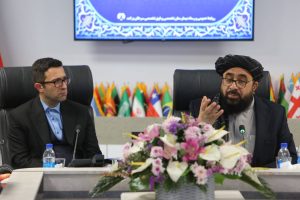
-
Voice of Life in World of News — Redefining Health Journalism in the Information Age

-
Senior Health Officials & Barkat GD Visit Sobhan Oncology
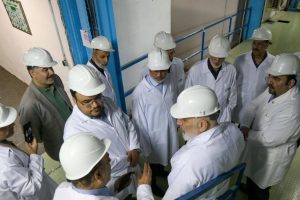
-
Barkat Group specialized meeting
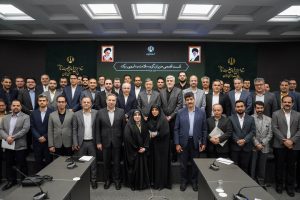
-
Safa Appointed as Barekat General Director
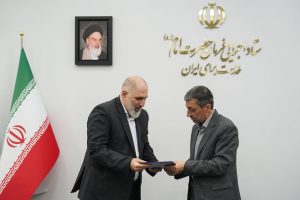
-
Barekat Health & Pharmaceutical Group at the 10th Iran Pharma Exhibition
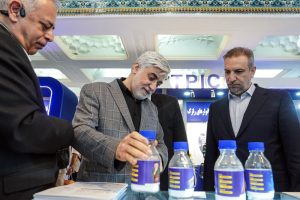
-
Ali Safa visits Sobhan Oncology & Sobhan Darou
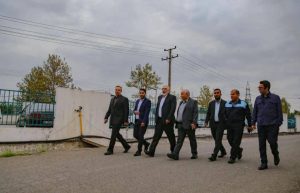
-
Pirsalehi & Safa visit Saman Daroo 8 Knowledge-based Company
